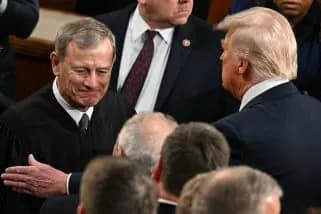Louis Marshall (1856–1929) was a classical liberal lawyer who linked economic liberty to civil-rights protection. He influenced two 1927 Supreme Court decisions — Tyson & Brother v. Banton (ticket-price limits) and Nixon v. Herndon (invalidating all‑white primaries) — and helped win Buchanan v. Warley in 1917. Marshall also opposed the 1924 National Origins Quota Act, arguing it mirrored nativist and Klan rhetoric. His consistent defense of property, contract, and minority rights is an overlooked chapter of Progressive Era legal history.
The Forgotten Classical Liberal: How Louis Marshall Fought Jim Crow and Defended Immigrants

Louis Marshall (1856–1929): A Consistent Advocate for Liberty
In the early months of 1927 the U.S. Supreme Court handed down two decisions that at first glance seemed unrelated: Tyson & Brother v. Banton, which struck down a New York limit on resale ticket prices, and Nixon v. Herndon, which invalidated a Texas law barring African Americans from voting in Democratic primaries. The connection between them is the lawyer who shaped both outcomes: Louis Marshall.
Classical Liberalism in Action
Often remembered as a reformer of the Progressive Era, Marshall rejected the more activist strains of Progressivism and instead championed a classical-liberal vision — defending property rights and economic liberty in regulatory cases while vigorously defending the civil and political rights of racial, ethnic, and religious minorities.
"There must be a limit to the so-called police power," Marshall wrote in 1923. "What right has the Legislature to say to me how much or how little I may receive for that which belongs to me—my labor."
That interest in individual liberty aligned him with the Court's liberty-of-contract jurisprudence represented by Lochner v. New York (1905). His reasoning helped convince the Court in Tyson & Brother v. Banton that unchecked price controls posed a dangerous precedent for limitless regulatory power.
Fighting Racial Exclusion
Marshall's civil-rights work was no less principled. In Nixon v. Herndon the Supreme Court unanimously struck down Texas's exclusion of Black voters from primary elections — a decision Marshall noted followed his brief closely and would prove foundational in dismantling the all-white primary system.
He had already helped secure an important victory in Buchanan v. Warley (1917), where the Court invalidated a municipal segregation ordinance on property-rights grounds. That case, led in part by fellow classical liberal Moorfield Storey in his role with the NAACP, showed how liberty-based legal arguments could be marshaled against Jim Crow restrictions.
Defending Immigrants and Condemning Nativism
Born to German-Jewish immigrant parents, Marshall was deeply troubled by the anti-immigrant currents of his time. He testified before Congress in 1924 against the National Origins Quota Act, denouncing it as discriminatory toward Catholics and Jews and warning that its logic echoed the rhetoric of nativist groups such as the Ku Klux Klan.
"The ideas which underlie [the Klan's] theory of Government in the United States find an echo in this legislation," he told lawmakers, criticizing quotas that privileged Anglo‑Saxon, Protestant immigrants over others.
Despite Marshall's vigorous opposition, Congress passed the 1924 quota law, which severely curtailed immigration from southern and eastern Europe. Yet his principled stand remains a notable example of classical-liberal opposition to ethnic and religious discrimination in immigration policy.
Legacy
Louis Marshall's career ties together seemingly disparate battles — free contract litigation, civil-rights suits, and fights over immigration law — under a single, consistent belief in individual liberty and equal treatment under the law. Though not widely remembered today, his contributions helped shape key constitutional doctrines and early civil-rights victories. His blend of property-rights advocacy and commitment to minority rights deserves renewed attention in discussions of American legal history.
Help us improve.

































